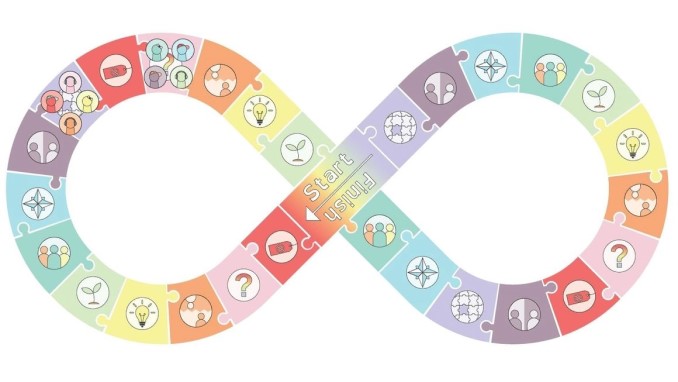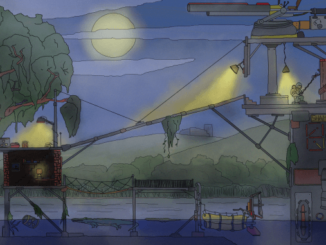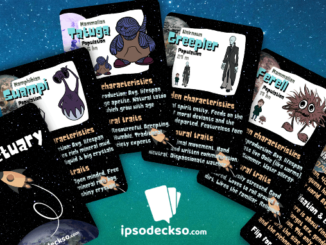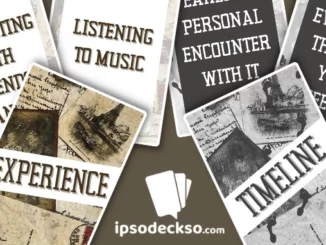
Debriefing and Feedback are critical components of any board or other media gaming experience, to realize continuous process improvement and healthy updates to the game. Game designs today can include post game surveys and questionnaires to solicit feedback and constructive criticism and improvements for board game play. This is especially critical for the version 1.0 or 1.1 of a game, when a game is in its infancy or formative period.
The Ubuntu Game is a physical and virtual board game designed to teach teenagers the wonders of diversity, inclusion and equality as well as empowering them to discuss critical issues facing us as a society like climate control, overfishing of the oceans and sustainable farming.
It does this through game play that challenges its players through questions, conversation, collaborative activities, experiential media (videos and virtual reality) and discovery about themselves, their beliefs and their likenesses and differences through culture, race, creed and other differentiators.
Today’s Teens are Problem Solvers
At Ubuntu Game we believe today’s youth are smarter, more opinionated and have greater access to information and therefore greater capability in thought processing and problem solving than any prior generation. Because of this, it is essential that their viewpoint on board game design and even their direct input be cultivated and encouraged. The majority of board games are designed by white males who dominate the space but also restrict its diversity, a known industry issue.
To combat this limited view in design, we released a beta or Minimal Viable Product (MVP) version of our game, designed to be played by beta customers to garner feedback and constructive improvements towards the game. It is a generally accepted practice that an MVP is a preliminary beta product with some clear cut shortcomings that can be iteratively improved or even pivoted on, depending on the nature of the feedback. Ubuntu Game solicited direct feedback from teenagers playing the beta game themselves.
With the success of the Ubuntu Game directly tied to the power or quality of our questions, our questions were derived from a diverse collection of young and older team members, some of whom were well versed in the diversity/inclusion space. We plan to crowdsource our game content and all-important game questions through our players ultimately.
This initial vetting of the game is all typically part of a lean startup or EXO initiative, which we adopted during the formative stages of Ubuntu Game to validate what we were doing. In the EXO framework, much up front thought is given by the game developers towards identifying the Massive Transformative Purpose or MTP. What is the critical impact the game will have in a positive way?
Our Massive Transformative Purpose
With Ubuntu Game, our MTP was to create a movement where diversity and inclusion and equality became the norm in the world to counter the recent outbreak of derision, bullying, racism and marginalization that bubbled to the surface due to Black Lives Matter and other incidents. This is considered alongside the specific problem which is being solved and how our game can solve the problem. Finally, of course, it makes the mechanics of the game much easier to design.
We felt that the route we wanted to take was getting teens into conversations to explore and discover their differences and to better understand and accept them. Initially, our focus groups validated this hypothesis as a core approach to diversity and inclusion understanding! This allowed us to formulate a Value Proposition Canvas to sketch out the benefits and problems solved by our game.
Within the game, we built online questionnaires and surveys to obtain feedback from game players to improve the game. We also had a Breakthrough Wheel which each player spins at the game’s conclusion, to determine what was their top takeaway from the game, their biggest personal breakthrough, or who they would like to share something with that they learned from the game.
In addition, they may be asked “What would you do differently after today’s game, or what action will they immediately take after today’s game?” or “What discussion will you have with your parent(s) after today’s game?”
Sharing as Learning
This is all intended to memorialize or anchor the key impacts or impressions from the game for each player, and to get them to verbalize it so that it becomes more present to them. Given the game play is a shared experience with other game players, this sharing can lead to significant breakthroughs and discovery by players.
This learning process sets the players up to look forward to future play sessions and clearly places their shared peer experience as a paramount feature of the game. The crystallization of the game’s outcome for the players makes them more mindful of their own growth, which is perhaps the game’s most important objective.
In conclusion, getting young adults to talk about their experience, contribute to the game’s content and seeking their ongoing feedback is what sets Ubuntu Game apart.
HOW THE UBUNTU GAME IS PLAYED

Players traverse the board using mini cultural icons by rolling a die. They land on spaces that trigger questions and conversations in six categories that matter, including diversity, connection, understanding our differences, our similarities, controversial topics and fun facts. A mobile app is used to add context, enlightenment or information to kindle the conversation. Players can play as individuals, as pairs or teams. Some players will spin to see what kind of barrier to play they will experience.
Virtual and Augmented Reality
Additionally, players will get to role play as “Avatars” and see themselves, literally, through a Virtual Reality experience, as someone from another culture, creed or place in life. Augmented Reality with accentuate some of the images they’re familiar with in their surroundings.
Players will also participate in activities, one on one or with the group, solving riddles about society and diversity, work collaboratively towards a common goal or even just have fun pitching in together to make a recipe!
The game is over when every player reaches the end of the board. The player, pair or team with the highest score wins. Winners get to spin the “Breakthrough” wheel landing on various options to explain what’s changed in their perceptions and what actions they will take.
Read Richard’s other article about Ubutntu game and watch the play session.
- Debriefing and Feedback for Ubuntu Game - 15th July 2021
- Prototyping and Playtesting – Games 2 Unite’s Ubuntu Game - 11th September 2021
- Debriefing and Feedback for Ubuntu Game - 15th July 2021





Be the first to comment